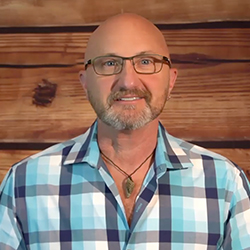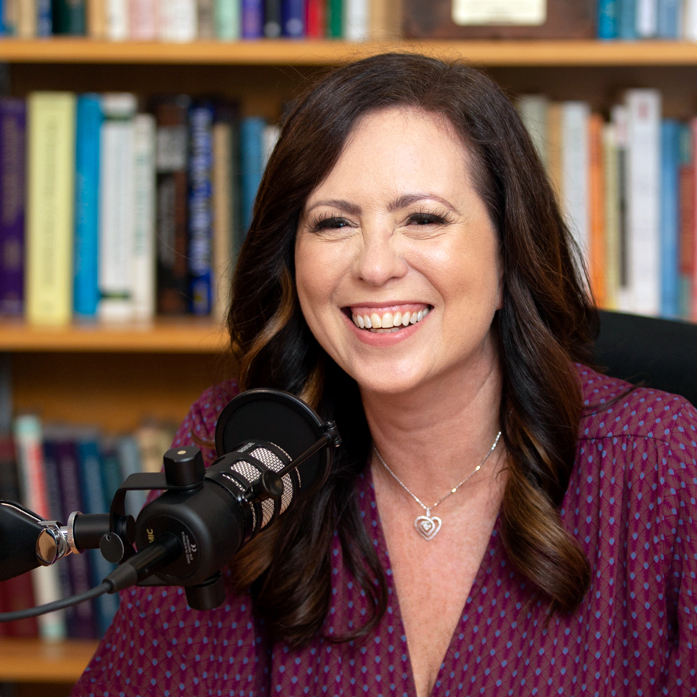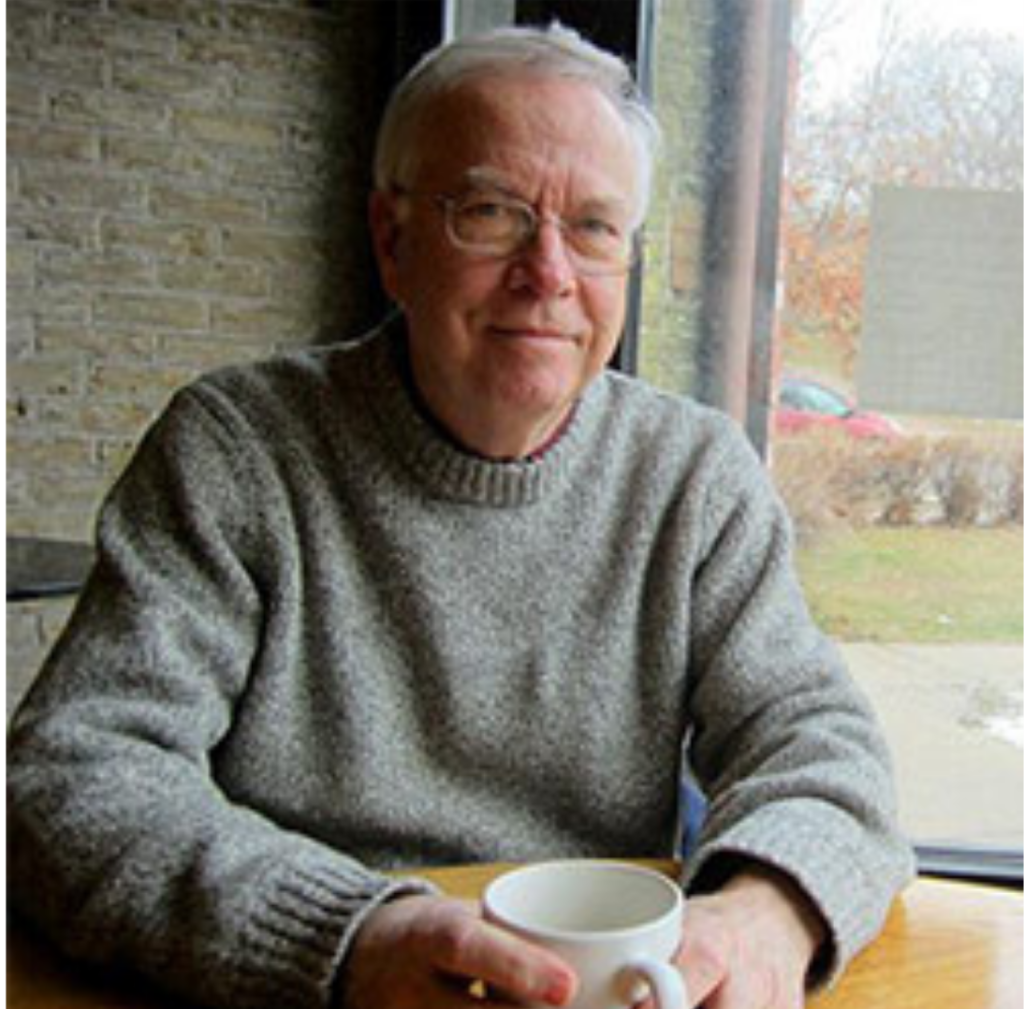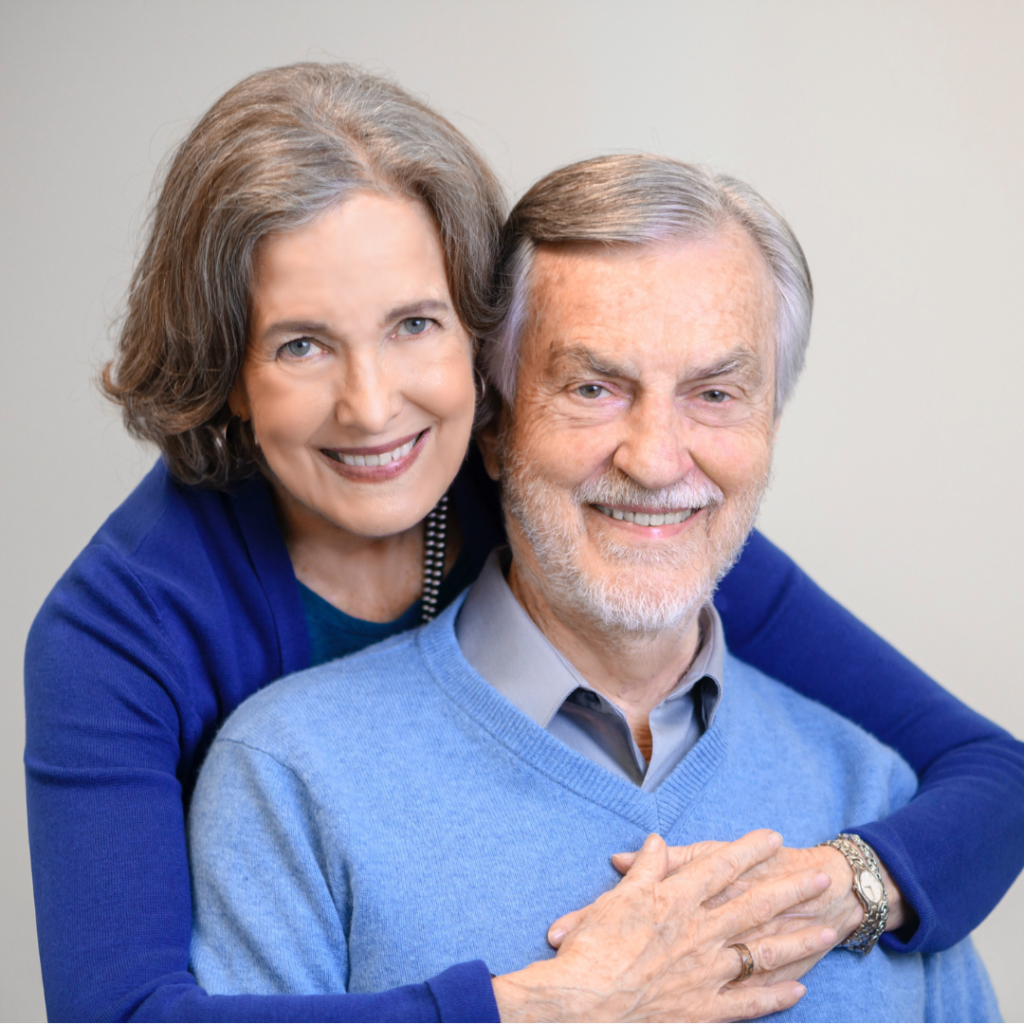Detailed Schedule
Friday, May 3rd

Convocation
Friday, May 3rd
8:45AM to 9AM Pacific Time
Description
Not for Credit

Learning to Live Relationally: Teaching Our Clients; Saving the World
Keynote 1
Friday, May 3rd
9AM to 10AM Pacific Time
Description
As practicing relationship experts we find ourselves steeped in war these days. In styles hot and cold, waring couples seek our advice. Conflict between nations haunts our consciences. Even Nature itself seems to be turning against us as a result of our own virtually suicidal behaviors. Across the globe, Democracy is on the ropes with an alarming resurgence of autocracy, the rise of the most virulent, savage aspects of Patriarchy. As a species, we are at a crossroads. We will trade in the millennial old paradigm of “power over” for a new life based on ecological wisdom, interdependence, or we may bequeath to our children and grandchildren a hot, mean, largely toleration world.
How can we relationship experts stand by in “neutral” silence – when we have something so critical to say, to teach?
The couples I work with may not have it in them to bring peace to the Mideast, but we can help them bring peace to their living rooms and bedrooms – by changing the same deluded paradigm harming us all at the macro level – the delusion of dominance. Our relationships are our biospheres. We don’t live above them, but inside them. The old individualistic world of win/lose; right/wrong, you versus me; us versus them must yield to the wisdom of enlightened self-interest. It is in my interest to keep my biosphere clean – by containing my temper perhaps, or perhaps on the other hand by learning to stand up for myself with love. This keynote introduces a new map – living relationally on this Earth – along with introducing a few core skills to accomplish it. Finally, it is past time for we therapists to accept the mantle of social activism, lift our voices, and share a perspective that might help our critically troubled, dangerous world.
Educational Objectives
- 1. Comprehend how relationships have changed from previous generations
- Equip our clients to work directly on their relationship to themselves in much the same way they’d work on an external relationship
- Move from toxic individualism and patriarchy to ‘US’

From Control to Relational Empowerment: Transcending Patriarchy One Couple at a Time
Workshop 1
Friday, May 3rd
10:15AM to 12:15PM Pacific Time
Description
Relational Life Therapy, (RLT) specializes in couples on the brink no one else has been able to help. We produce deep, lasting change quickly by helping our clients step into a new world. We offer a map for a new way to live and a practical toolbox to realize it. Our clients move beyond the individualistic patriarchal mores we’ve all grown up with to discover the ecological wisdom of relationship, interconnectedness. This is not pie in the sky idealism but rather a practical “relational technology” that can effectively equip our clients to create and sustain the lifelong lover relationships we now long for.
Couples first learn to think relationally – which is itself transformative. For example, the relational answer to the question: “Who’s right and who’s wrong?” Is: ‘Who cares?” What matters is: “How do we face the issue at hand in a way that works for both of us?”
RLT takes place in three stages
- Waking Up The Client
Loving confrontation (joining through the truth) forms an immediate therapeutic alliance by helping clients see the repeating dysfunctional stances they bring into
their relationships, for example, angry pursuit, their part in the vicious circle they’re stuck in. - Trauma Work in the Presence of the Partner
RLT is unique in doing deep trauma work inside the couples therapy. Where did you learn to do this? What, and who, were you adapting to? - Learning the Skills of Relational Living
Essential, potent, and uncommon skills are taught and reinforced
This workshop introduces and demonstrates all three phases
Educational Objectives
- Differentiate between the ‘Three Phases of RLT’
- Create an environment to do trauma work in front of the partner
- Distinguish between shame and guilt, which is healthy and directs us toward interpersonal repair

Introduction To Gender Affirmative Couple Therapy With Transgender/Gender-Expansive Couples
Workshop 2
Friday, May 3rd
10:15AM to 12:15PM Pacific Time
Description
Dr. Giammattei will present the underlying framework that therapists who work with transgender or gender-expansive (TGE) couples need to understand to provide gender-affirming treatment. He will share ways to explore your own hetero/cis-normative beliefs around coupling and how these influence the models you choose, the questions you ask, and the interventions you use. While TGE couples experience many of the same issues as other couples, we will explore the minority stress and unique stressors that impact these issues in profound ways. Dr. Giammattei will use experiential exercises and clinical vignettes to discover and utilize the basics of the gender-affirming approach to couple therapy.
Regardless of the model of couple therapy used, being a gender-affirming couples therapist requires both an understanding of your own gender narratives, the hetero/cisnormativity in your models, as well as the key issues that may impact couples where one or more partners is TGE. It involves moving beyond simply holding a positive view of TGE clients or having some knowledge of the most obvious issues TGE individuals face; while these may be necessary, they are not sufficient even if you consider yourself a part of the LGBTQ+ community.
Educational Objectives
- Recognize and assess the impact of personal/social bias and list several ways to address these therapeutically
- Recognize the ways traditional couple therapy models may uphold hetero/cis-normative practices and formulate gender-affirming tactics to address these
- Identify the differences between sexual orientation and gender identity as well as the complicated ways these intersect for TGE couples
- Demonstrate a basic understanding of how familial, social, cultural, economic, legal, and political experiences exacerbate minority stress for TGE couples and Identify gender-affirmative approaches to address the impact of this on TGE couples’ relationships

Show Me, Don’t tell Me – Experiential Approaches with Couples
Workshop 3
Friday, May 3rd
10:15AM to 12:15PM Pacific Time
Description
Experiential techniques can reach the heart of the matter sooner as it focus more on process and less on content but couples sometimes can resist engaging in it preferring to stay on the storytelling of the last argument. This workshop will present ways to circumvent the “blame game” using experiential techniques with a “twist” that will make sessions come to life, bringing more fun, and emotional impact to the sessions, and making it memorable.
Educational Objectives
- Name three experiential techniques to use in couples therapy
- Describe Therapist Sculpting
- Explain how to introduce experiential techniques with couples

Lunch
Friday, May 3rd
12:15PM to 1:30PM Pacific Time

What The World Needs Now
Keynote 2
Friday, May 3rd
1:30PM to 2:30PM Pacific Time
Description
As with any approach, couple therapy must have a clear vision toward which the couple can navigate. We may call this the therapeutic goal or therapeutic narrative. The clarity by which the therapist holds this vision and expects the couple to meet this goal largely determines therapeutic success. We might ask the couple before us, “Why are you a couple?” “What’s the point of your relationship?” “Who or what do you both serve?” Most partners will say, “We love each other,” or, “We have children,” or, “We have similar things in common.” This speech focuses on what predicts long term success in adult romantic relationships. We will discuss how purpose and shared vision sets the stage for meaningful, long-lasting relationships, and how a lack of purpose, shared meaning, and shared principles of governance (guardrails that protect partners from each other) is a predictor of accumulated, psychobiological threat and eventual dissolution. Here we examine couple capacity to co-regulate distress states as essential to threat reduction as well as confront the couple attitude when it comes to what sustains relationships over the long run. Love is not enough to ensure relationship endurance given the ever-present, survival-based nature of the human primate.
Educational Objectives
- To be able to list at least five purpose-centered principles for a union.
- To be able to name at least five examples of a shared vision.
- To be able to define and describe shared principles of governance.
- To be able to explain why a couple’s shared mythology, shared purpose, shared vision, and shared relationship ethics is vital to couple longevity and happiness.

Managing Acting Out in Couple Therapy
Workshop 4
Friday, May 3rd
2:45 PM to 4:45 PM Pacific Time
Description
Couple therapists often expend too much energy by failing to take up acting out in couple therapy. Therapists are working too hard because they fail to notice acting out by one or both partners and deal with it appropriately. Acting out should not be rewarded with doing therapy. Rather, acting out is a sign that the therapist does not have a therapeutic alliance with the couple and must use specific tools necessary to address it as soon as it arises. A therapeutic alliance means that the couple and therapist remain fully collaborative, cooperative, and on task. The task of couple therapy is to focus on the relationship, not on the therapist or partner on partner. The couple therapist must use supportive confrontation of the couple system itself (avoiding partners directly) in order to gain a therapeutic alliance. In this workshop, attendees will learn how to spot signs of acting out and practice — through demonstrations — various interventions. This workshop will help therapists work less and accomplish more with acting out couples.
Educational Objectives
- To be able to list at least five ways acting out appears during couple therapy
- To be able to apply at least three interventions gaining a therapeutic alliance with insecurely attached partners
- To be able to demonstrate the technique of confronting a couple “down the middle”

Solution-Focused Couples Therapy
Workshop 5
Friday, May 3rd
2:45 PM to 4:45 PM Pacific Time
Description
This presentation will provide an overview of Solution Building Couples Therapy (SBCT). The presenter will introduce the Diamond Approach to SBCT and will provide detailed explanations of each step of the Diamond Approach. Participants will see real examples of actual couples engaged in SBCT. Participants will engage in in-depth discussions about how to conceptualize cases from this perspective.
Educational Objectives
At the conclusion of this presentation participants will be able to:
- Discuss the fundamentals of the Diamond Approach of Solution Building Couples Therapy
- Articulate the underlying principles associated with Diamond Approach
- Implement SBCT from the Diamond Approach with clients effectively

Integrative Sex and Couples Therapy
Workshop 6
Friday, May 3rd
2:45 PM to 4:45 PM Pacific Time
Description
Therapists and counselors need training and tools to intervene with relationship issues where there are sexual dilemmas. After an overview of clinical concepts, this course will offer skills to help therapists and counselors address concerns around intimacy, helping individuals and couples to improve their intimate relationships.
These topics may trigger countertransference and projection for the therapist and couples can face frustration and repeat patterns that lead to destructive behaviors both individually and with a partner. We will the basics of the integrative sex therapy model and touch upon trauma, desire issues and recovery from affairs and how these unique issues impact treatment.
Based on clinical practice, research and case examples, we will cover interventions and techniques that foster effective, ethical therapeutic relationships for clients struggling with intimacy issues.
Educational Objectives
- Participants will understand methods of approach to intervention in relationships that are experiencing sex and intimacy conflicts
- Participants will review relational, emotional, sexual and intimacy skills in relationship therapy and how these affect therapeutic dynamics
- Participants will review a range of sexual functioning and behavior, including desire discrepancy, difficulty with arousal, sexual trauma, affair recovery and how relationship therapy improves treatment outcomes
Saturday, May 4th

Therapists as Clients in Couple Therapy
Keynote 3
Saturday, May 4th
9 AM to 10 AM Pacific Time
Description
Therapists experience the same relationship issues we see in our offices. Although our clinical training may give us more access to our inner emotional lives than many people, we face “occupational hazards,” such as a tendency to read our partner’s mind and then explain it to them. With humility and humor, let’s explore the relational self of the therapist and how we sometimes show up in couple therapy. In this workshop, we’ll learn how to how to help fellow therapists when they come as clients to leverage their personal and professional strengths to have healthier relationships—and avoid blind spots that come with the territory.
Educational Objectives
- Identify common challenges therapists face in their own relationships
- Discuss how therapists’ relational blind spots can show up with their clients facing relationship problems
- Practice skills for helping therapists who come to therapy for relationship problems.

What Not To Say In Couple Therapy
Workshop 7
Saturday, May 4th
10:15 AM to 12:15 PM Pacific Time
Description
Although nowadays we have great models of couple therapy, therapists can become pessimistic in working with difficult couples—and inadvertently send messages that undermine their relationships. Based on a new research study with clients who have been in couple therapy, this presentation will describe things to generally avoid saying to couples about their relationship and its prospects for repair. The workshop will offer a mindset for staying positive with couples and a set of skills for handling therapeutic impasses without resorting to making comments that undermine the therapy and the couple relationship.
Educational Objectives
- Identify therapist comments in couple therapy that are associated with poorer outcomes
- Discuss why these comments are generally not productive and an be harmful
- Describe ways to maintain a positive mindset with challenging couples and deal with therapeutic impasses in a constructive way.

Living Relationally: Essential Skills
Workshop 8
Saturday, May 4th
10:15AM to 12:15PM Pacific Time
Description
This workshop focuses on the critical third phase of RLT – teaching couples how to
actually do it. Four key areas will be introduced and illustrated:
Relational Mindfulness
- How to work with and ultimately master our own – and our partners’ reactivity
- The Three Steps to Getting More of What You Want
- The Art of Repair
- Am I Getting Enough? The Tool of “Relational Reckoning”
Educational Objectives
- Understand the definition of ‘Relational Mindfulness’ – the core practice
- Equipping our clients to use their relationships as crucibles for their own transformation.
- How to give our clients a relational map and tool kit, a relational technology, that has the power to deliver on our new romantic ambitions.

Naughty and Nice: How Male Couples Build and Sustain Connection
Workshop 9
Saturday, May 4th
10:15 AM to 12:15 PM Pacific Time
Description
Male couples face multiple challenges. Living with a status that is unrecognized or marginalized, and where societal homophobia is consciously and unconsciously internalized, serves to erode these couples’ strengths and ability to thrive.
This workshop will explore how male couples maintain successful long-term relationships while choosing the model (heteronormative, open, monogamous, polyamory, and betrayal) that is right for them. Additionally it will address how gay development impacts the wellbeing of male couples.
Couples have the right to choose how they want to live and to expect the support of their therapist, but too often clinicians who have less experience working with gay men will try to make the couple adapt to an arrangement within the clinician’s comfort zone. Workshop attendees will learn to stretch their own comfort levels in dealing with these cases and develop their own style of challenging couples who avoid intimacy or closeness.
Additionally, tools for nurturing and sustaining intimacy will be provided. Clinicians wishing to improve their effectiveness in working with male couples will gain insights into different modes of connection and strengthen their expertise in treatment.
Educational Objectives
- Attendees will expand skills and comfort in identifying models of relationships beyond heteronormative.
- Attendees will list developmental challenges unique to gay men.
- Attendees will incorporate interventions for forgiveness and acceptance following betrayals.

Lunch
Saturday, May 4th
12:15PM to 1:30PM Pacific Time



Initial Session
Panel 1
Saturday, May 4th
1:30 PM to 2:30 PM Pacific Time
Description
The initial session may be even more important for couple therapy than individual therapy because the partners often have different levels of motivation and competing ideas about what problems to work on. They may also hijack the session when their reactivity is high, and then feel that nothing was accomplished. In this workshop, you will hear three experienced couple therapists describe how they take charge of the first session while communicating empathically with the couple, what key information they gather, and how they form a working alliance with two people who are at odds with each other.
Educational Objectives
- Identify the key challenges couple therapists face in the initial session
- Describe strategies for exercising leadership in this session while connecting with each partner
- Discuss skills for developing a therapeutic alliance that sets the stage for the work ahead
Unlocking Harmony: Navigating Relationships with the Diamond Approach of Solution-Focused Couples Therapy
Keynote 4
Saturday, May 4th
2:45 PM to 3:45 PM Pacific Time
Description
In this keynote, we will delve into the transformative realm of Solution-Focused Couples Therapy, exploring the Diamond Approach that unlocks the potential for harmony in relationships. This approach focuses on cultivating positive change, resilience, and effective communication, empowering couples to navigate challenges and deepen their connection. Join us on a journey to discover practical tools and insights that foster understanding, promote emotional intimacy, and pave the way for enduring relationship satisfaction.
Educational Objectives
- Mastering the Diamond Approach:
Gain a comprehensive understanding of the Diamond Approach within Solution-Focused Couples Therapy, exploring its key principles and techniques. Learn how to apply this innovative framework to identify and amplify positive aspects of relationships, fostering a dynamic shift toward harmony. - Effective Communication Strategies:
Explore and practice communication strategies that enhance connection and understanding between partners. Acquire valuable tools for addressing conflicts constructively, expressing needs and desires, and creating an open and supportive communication environment within the relationship. - Building Resilience in Relationships:
Delve into the components of resilience within the context of a romantic relationship. Discover practical methods to strengthen emotional bonds, navigate challenges, and create a foundation for lasting harmony. Explore how the Solution-Focused Couples Therapy’s Diamond Approach contributes to building resilience and sustaining a fulfilling and enduring partnership.




Modern Couples
Panel 2
Saturday, May 4th
4 PM to 5 PM Pacific Time
Description
The needs of couples change as our times are changing. Flexibility around sexuality, gender and betrayal are skills that we need to continue to incorporate. This panel will discuss issues of gender, identity shifts, sex and intimacy, and multiculturalism that modern couples encounter in their relationships. We will also discuss alternative and modern monogamy structures and how to create new monogamy agreements.
Educational Objectives
- Describe two issues that couples face regarding gender and sex/intimacy
- Describe two issues that are specific to multicultural couples
- Define a current and resilient model in how to effectively work with couples.
- Identify ways to create monogamy agreements using alternative relationship continuum
- Describe two issues that arise when one partner shifts genders in the relationship.
Sunday, May 5th

Working with Male Couples: The Good, the Not-so-Good, and the Troubling
Keynote 5
Sunday, May 4th
9 AM to 10 AM Pacific Time
Description
Gay men in our culture are mythologized, pathologized, envied, ignored, and oversimplified. Clinicians may be experts in treating heterosexual couples, but too often they miss out on the most effective interventions for this specific population. Men presenting for couples treatment are frequently seeking closer ties—while simultaneously embracing independence and avoidant behaviors. These norms are accepted within the gay community and are also considered norms of masculinity for cisgender men. The couples therapist faces the challenge of transcending these norms and suggesting an intimacy regime that is satisfactory for men. To be effective, it’s essential for clinicians to appreciate community nuances and to feel comfortable talking about gay sexuality. Cultural and racial backgrounds also need to be understood as part of the couples matrix.
Rick Miller, LICSW has been treating male couples for 40 years and will share success and impasses in his couples work, as well as sharing his experiences as part of a long-term gay partnership.
Educational Objectives
- Attendees will be adept at identifying specific norms for treating male couples compared to other populations.
- Attendees will be able to address how intersectionality complicates challenges for male couples.
- Attendees will recite avoidant behaviors that impact the wellbeing of male couples.

Hypnosis for Couples
Workshop 10
Sunday, May 5th
10:15 AM to 12:15 PM Pacific Time
Description
Hypnosis is a powerful tool for change and when used in couples therapy it can connect couples with their internal resources, teach them co-regulation, and help create secure bonding. This workshop will teach simple and impactful techniques that you’ll be able to use right away with your couples to empower them to change and make therapy session memorable. No previous experience with hypnosis is necessary.
Educational Objectives
- Name two hypnotic techniques to be used with couples
- Describe a hypnotic technique that enhances co-regulation
- Give three reasons for using hypnosis in couples therapy

How To Talk With Anyone About Anything
Workshop 11
Sunday, May 5th
10:15 AM to 12:15 PM Pacific Time
Description
Talking is the most dangerous thing most people do, and listening is the most infrequent. Participants in this workshop will learn that “how” we talk, not “what” we talk about is the source of all human conflict. And they will learn a new way of talking without criticism, listening without judgment, and connecting beyond difference that will be transformative in all aspects of their lives, including how they do couple’s therapy.
Educational Objectives
- Discuss with others the root source of human conflict.
- Teach the difference between monologue and dialogue.
- Use the dialogue process in the clinical practice.
- Teach dialogue to the general public.

Promoting Clients’ Self-Care Supports Relationships
Workshop 12
Sunday, May 5th
10:15 AM to 12:15 PM Pacific Time
Description
Stressed out, burned out couples don’t have the time or energy to take care of themselves, let alone to nurture their relationship. They come to couples therapy, but then say they’re too busy when they don’t apply what is discussed in session. They’re cutting corners on sleep, diet, and exercise and thereby have less cognitive and emotional bandwidth, including for their partner. They’re more irritable with each other, less patient, and less tolerant of differences. They can easily fall into a zero-sum tug of war where both partners hope for more support from the other, but neither has it to give, furthering the discontent with each other.
Everyone knows the obvious good advice on sleep, diet, and exercise, yet then doesn’t always do it. What does this poor self-care reveal about the individual or the relationship? What are the deeper individual and relationship dynamics that interfere with this self-care? For example, someone who struggles to set limits with work or children and thereby loses time with their partner at night. Is it a problem of limit setting earlier in the day or an avoidance of their partner at night? In order to promote better self-care and more energy for the relationship, we need to identify and address these primary causes.
There is also the possibly contentious situation where one partner wants the other to engage in better self-care. Whose goal is this? And how do the partners negotiate this apparent difference in priorities? Promoting self-care benefits the relationship and promoting better relationship functioning benefits self-care.
Educational Objectives
- Identify clients whose poor self-care is impacting relationship functioning
- Apply strategies to improve sleep, diet, and exercise
- Apply strategies to address the deeper dynamics that impact self-care

Lunch
Sunday, May 5th
12:15 PM to 1:30 PM Pacific Time

GIVING THE LOVE YOU WANT: From Romantic to Real Love
Keynote 6
Sunday, May 5th
1:30 PM to 2:30 PM Pacific Time
Description
The major difference between romantic and real love is that romantic love HAPPENS to you without your choice. It finds you. In contrast, real love is nowhere to be found and it does not exist without your choice. In fact, it comes into being only by an act of will. You create it, and, in that act, you become what you want. This lecture will describe the paradox of “giving what you want” is the only way to get it.
Educational Objectives
- Teach the difference between romantic and real love.
- Help couples practice the dialogue process that helps them make the shift.
- Discuss with clients and colleagues the paradox of real love.



Is It Really Over?
Panel 3
Sunday, May 5th
2:45 PM to 3:45 PM Pacific Time
Description
Perhaps one of the most challenging aspects of affair recovery is the worry by the betrayed partner that the unfaithful partner has not in fact ended contact with the affair partner or will re-establish contact. This can be especially pernicious and enduring when the unfaithful partner has been discovered to have had additional contact after vowing to end it. For many betrayed partners, these subsequent discoveries can feel like even deeper betrayals than the initial infidelity, even more salt in the wound. The unfaithful partner will swear up and down that there has not been any additional contact and that there will not be in the future. The betrayed partner desperately wants to believe it, but also needs to protect themself against further pain. The dilemma for both partners (and the therapist) is that we cannot prove a non-event–it’s possible to show that something did happen, but a lack of evidence may also simply mean that it has not yet been discovered. “Is it really over?” will never have a fully satisfying answer, but both partners need to find a way to a satisfying enough answer. We will discuss how to help struggling couples in this crucial and challenging aspect of affair recovery that can sometimes be more difficult than the white hot emotions of the initial discovery.
Educational Objectives
- Describe the unique challenges of this stage of affair recovery
- Apply strategies to help clients navigate the inherent uncertainty of all relationships
- Facilitate discussions on what constitutes evidence and what are its limits

Closing
Sunday, May 5th
3:45PM to 4PM Pacific Time
Description
Not for Credit
